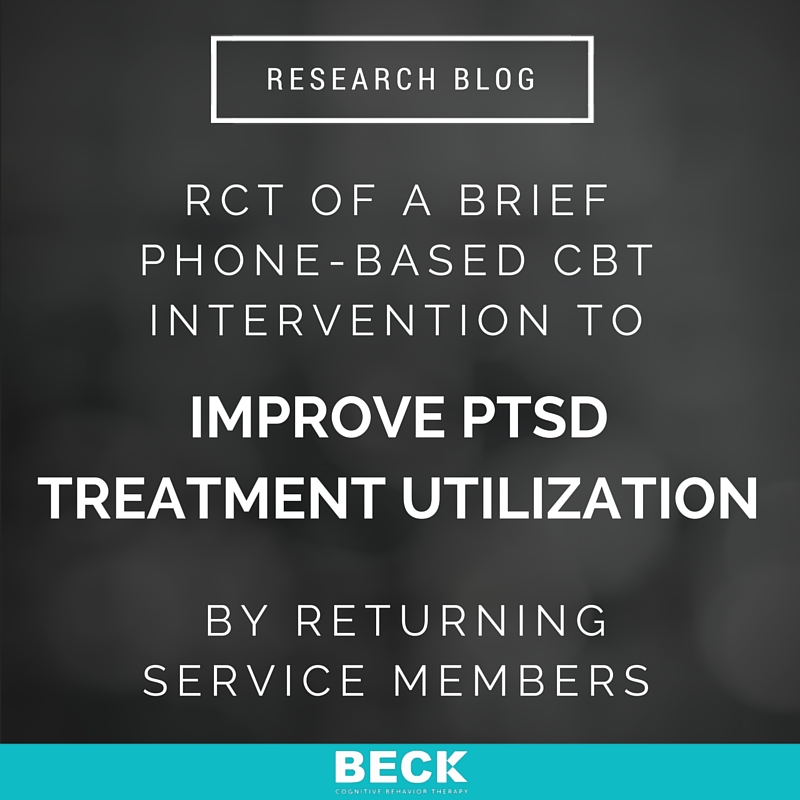Abstract

Worried about their reputation and career prospects, returning service members with PTSD may avoid seeking treatment. In a randomized controlled trial, the authors examined engagement in treatment and symptoms among veterans with PTSD who received a brief phone-based intervention to discuss why they had avoided treatment. Veterans who received a call entered treatment sooner and experienced more immediate reductions in PTSD symptoms than veterans who received usual care. By six months, differences between the two groups had faded, suggesting that adding a second phone call might be warranted.
Objectives
Many service members do not seek care for mental health and addiction problems, often with serious consequences for them, their families, and their communities. This study tested the effectiveness of a brief, telephone-based, cognitive-behavioral intervention designed to improve treatment engagement among returning service members who screened positive for posttraumatic stress disorder (PTSD).
Methods
Service members who had served in Operation Enduring Freedom or Operation Iraqi Freedom who screened positive for PTSD but had not engaged in PTSD treatment were recruited (N=300), randomly assigned to either control or intervention conditions, and administered a baseline interview. Intervention participants received a brief cognitive-behavioral therapy intervention; participants in the control condition had access to usual services. All participants received follow-up phone calls at months 1, 3, and 6 to assess symptoms and service utilization.
Results
Participants in both conditions had comparable rates of treatment engagement and PTSD symptom reduction over the course of the six-month trial, but receiving the telephone-based intervention accelerated service utilization (treatment engagement and number of sessions) and PTSD symptom reduction.
Conclusions
A one-time brief telephone intervention can engage service members in PTSD treatment earlier than conventional methods and can lead to immediate symptom reduction. There were no differences at longer-term follow-up, suggesting the need for additional intervention to build upon initial gains.
Stecker, T., McHugo, G., Xie, H., Whyman, K., & Jones, M. (January 01, 2014). RCT of a brief phone-based CBT intervention to improve PTSD treatment utilization by returning service members. Psychiatric Services (washington, D.c.), 65, 10, 1232-7.